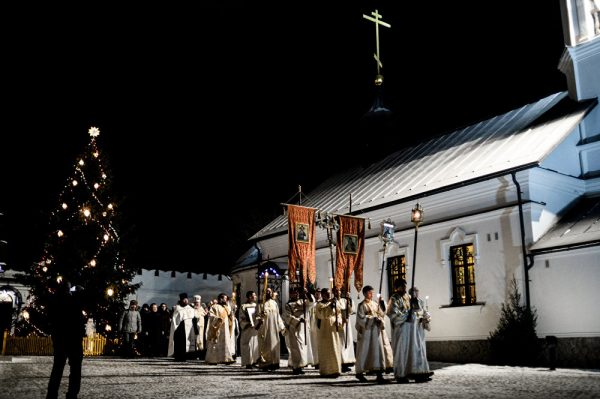
© SPUTNIK/ KONSTANTIN CHALABOV
The majority of those celebrating Eastern Orthodox Christmas on January 7 live in Russia, Ukraine, Belarus, Bulgaria, Georgia, Greece, Macedonia, Moldova, Montenegro, Romania and Serbia. The holiday is also observed according to the Julian calendar by minority populations in Albania, Bosnia and Herzegovina, Kazakhstan, Israel, Jordan, Lebanon and Syria.
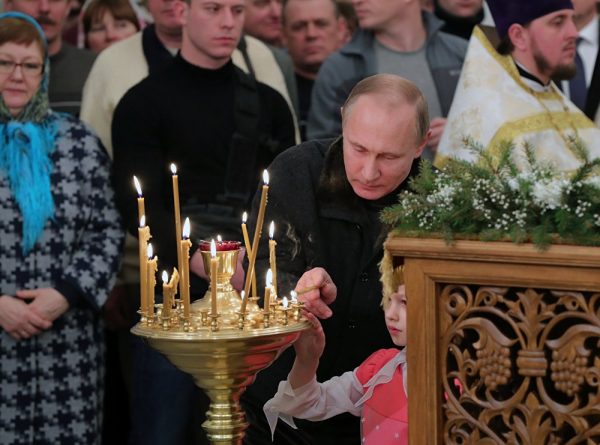
© SPUTNIK/ MICHAEL KLIMENTYEV
Russian President Vladimir Putin attends a Christmas service at the St. George’s Monastery, Novgorod Region.
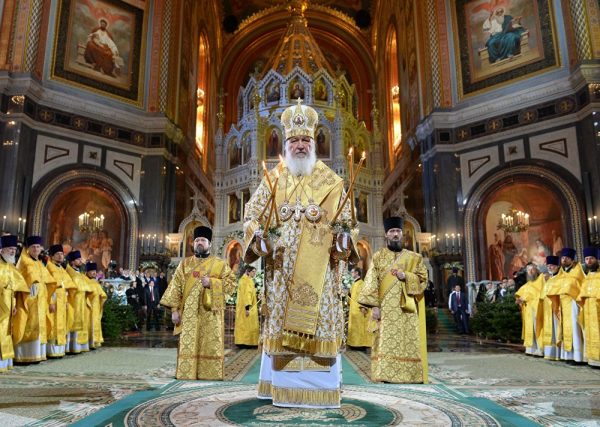
© SPUTNIK/ SERGEY PYATAKOV
Patriarch Kirill of Moscow and All Russia holds a Christmas service at the Cathedral of Christ the Savior, Moscow.
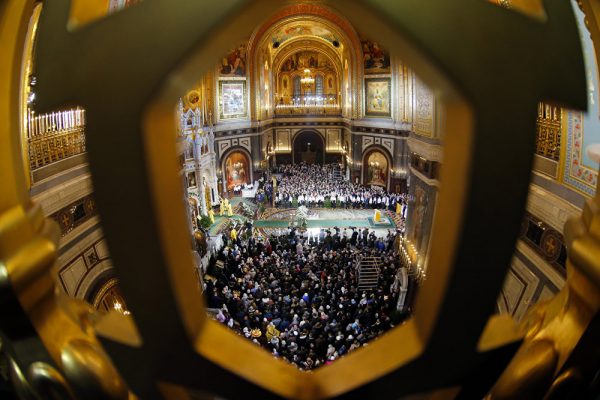
© AP PHOTO/ ALEXANDER ZEMLIANICHENKO
In 337, Pope Julius I approved December 25 as the date of Christmas. Since then, Christendom celebrates Christmas on December 25 (with the exception of the Armenian Church, which celebrates Christmas and Epiphany as a single feast of the Epiphany). The Russian Orthodox Church also celebrates Christmas on December 25, but as it did not accept the calendar reform by Pope Gregory XIII, the feast is observed on that date in accordance with the old Julian calendar, or on January 7 according to the new Gregorian calendar.
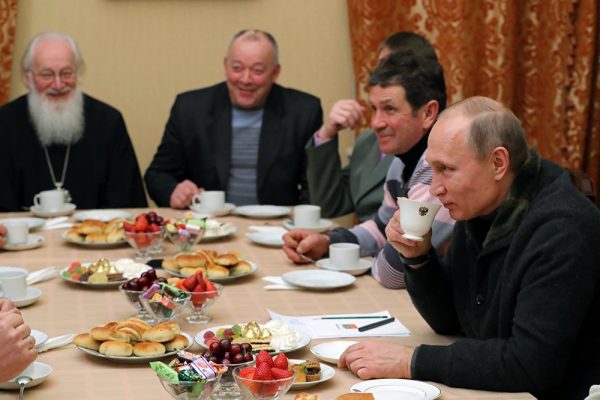
© SPUTNIK/ MIKHAIL KLIMENTYEV
Russian President Vladimir Putin talks to fishermen after attending a Christmas service at the St. George’s Monastery, Novgorod Region.
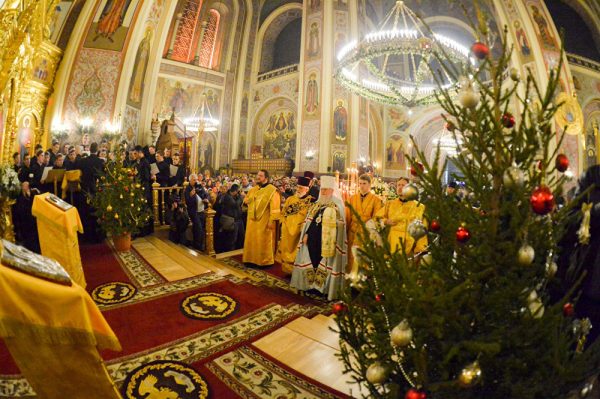
© SPUTNIK/ GEORGIY ZIMAREV
At Christmas, it is customary in many families to decorate a Christmas tree and give each other gifts. Christmas tree branches are adorned with various sweets and glowing lights.
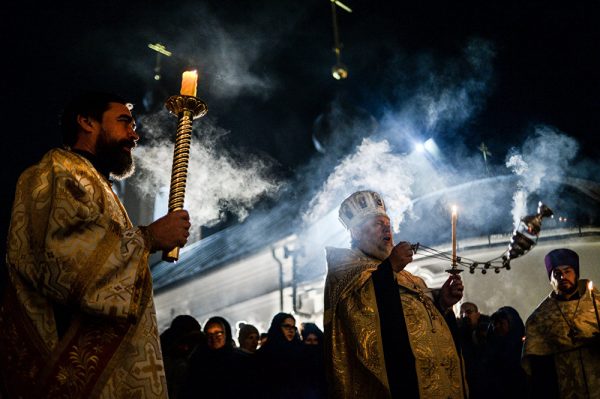
© SPUTNIK/ KONSTANTIN CHALABOV
After the church service on Christmas day, people would break the fast with all kinds of meat and fish dishes, as well as a jellied or roasted goose with apples. Roasted poultry adorned the Christmas table. Chicken was served cold, while goose or duck was served hot. Cold chicken was garnished with pickles, tomatoes and herbs, while hot poultry was served with roast potatoes. In every home, there were pies and cakes made of unleavened rye dough with various fillings. The Christmastide cakes were also given out to carol singers.
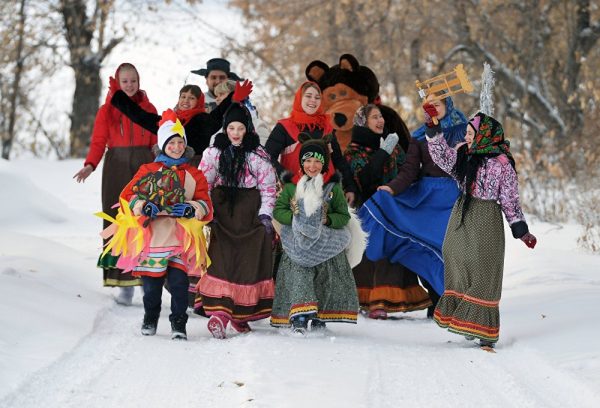
© SPUTNIK/ ALEXANDR KONDRATYUK
In Russia, traditions and religion are combined. Christmas celebrations last from January 6 to January 18. These days are filled with ancient rites. For example, one of the main traditions is guising.
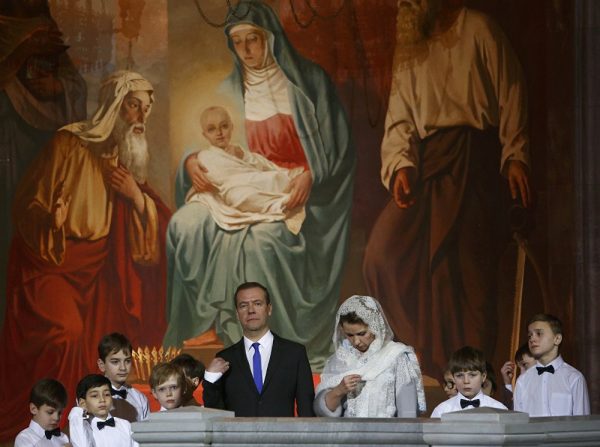
© REUTERS/ SERGEI KARPUKHIN
Russian Prime Minister Dmitry Medvedev and his wife Svetlana pray during a service on Orthodox Christmas at the Christ the Saviour Cathedral in Moscow, Russia January 6, 2017.
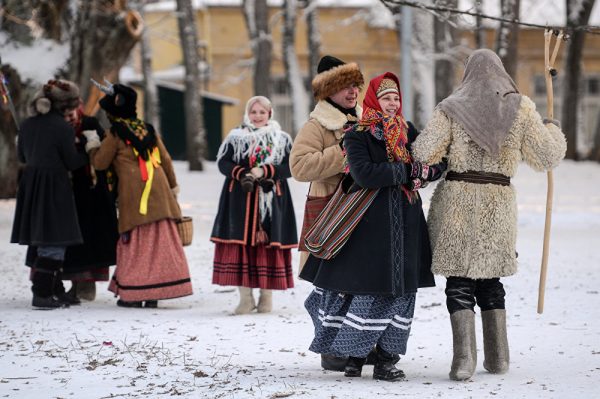
© SPUTNIK/ KONSTANTIN CHALABOV
Guisers walk from house to house of friends or acquaintances singing Christmas carols in their honor and asking for a treat. Householders show generosity and hospitality to their unexpected guests and give them many gifts.
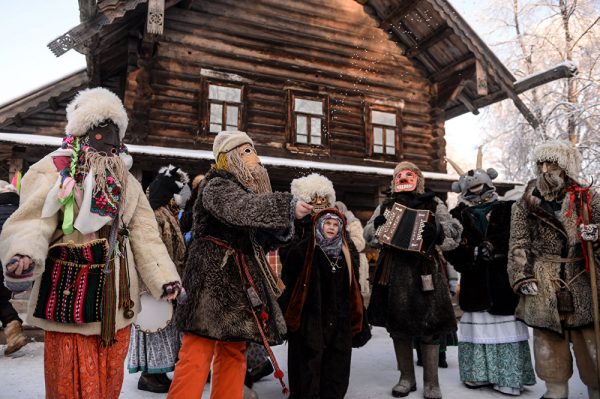
© SPUTNIK/ KONSTANTIN CHALABOV
To thank the homeowners for their generous gifts, guisers perform a song wishing them a rich harvest, newborn livestock, and good order at home. Then they leave for another house.
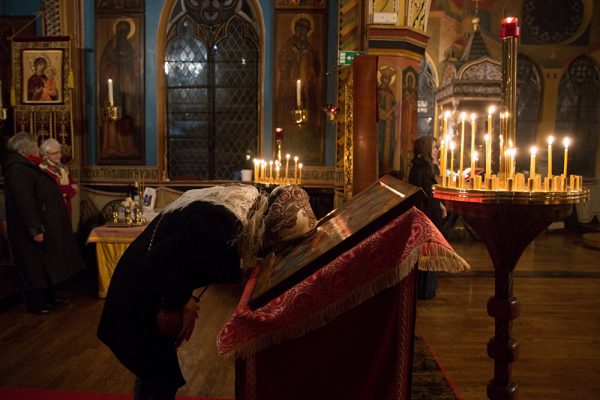
© REUTERS/ PHILIPPE WOJAZER
A woman prays during the Vigil mass at the Russian Orthodox church Saint Serge in Paris, January 6, 2017 on the eve of Orthodox Christmas Day, which is celebrated on January 7.
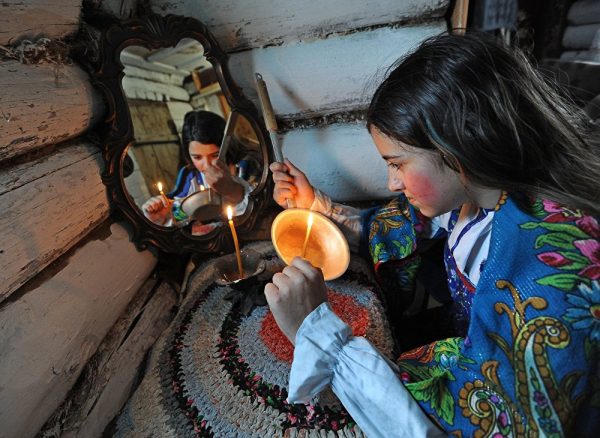
© SPUTNIK/ ALEKSANDR KONDRATUK
Christmastide is also known for its fortune-telling tradition. Eastern Slavs consider Christmas and Epiphany eves to be the best time for fortune-telling. If a girl wants to see her groom, she must sit in a dark room between two mirrors, light candles and peer into the gallery of reflections hoping to see her future husband. Questions about love, marriage and family life have always been the most popular in fortune-telling.
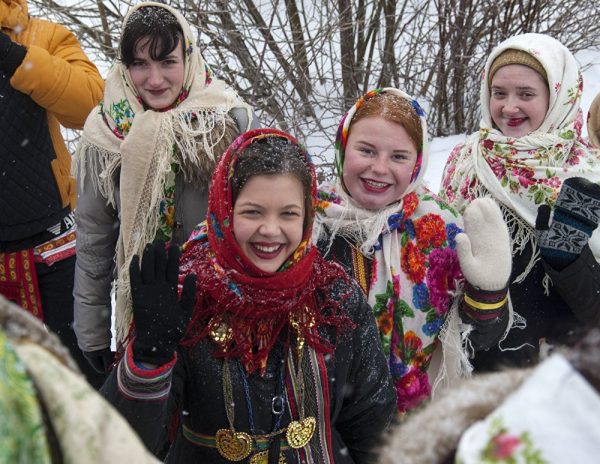
© SPUTNIK/ VALERY MOREV
Participants in the Winter Malanya festival of ethnic groups and historical reenactment at Klyuchi regional park of Prokhorovsky District’s Kostroma village.
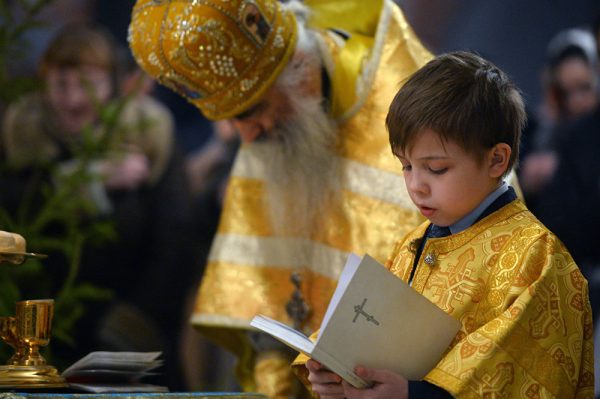
© SPUTNIK/ MAKSIM BOGODVID
Archpriest Pavel, the rector of the church, holds a Christmas service at the Church of the Icon of The Theotokos of Tikhvin in Kazan.
















